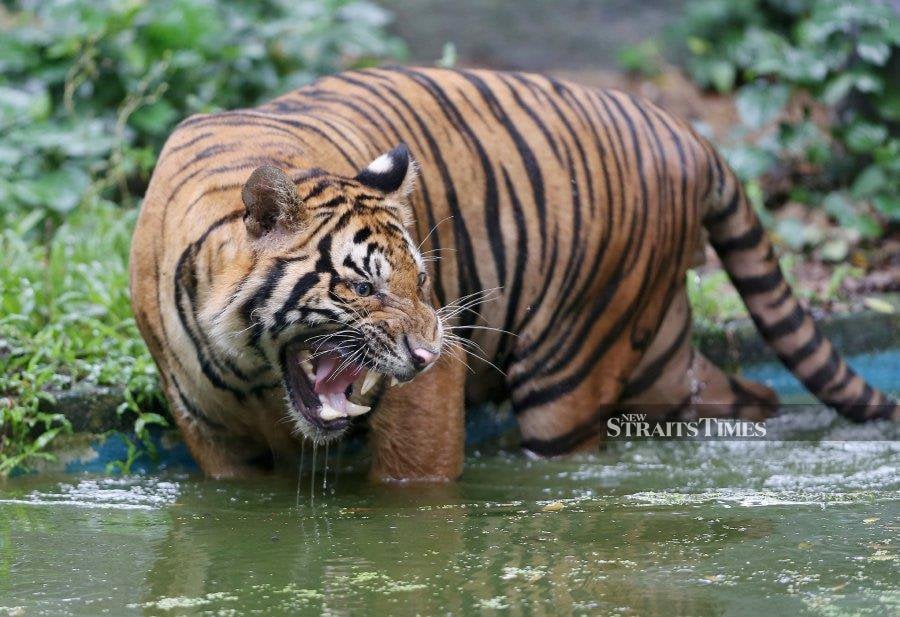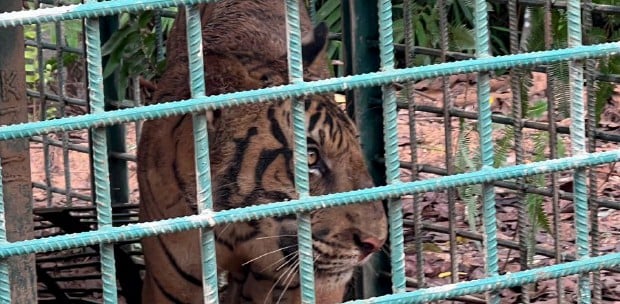KUALA LUMPUR: The decline in prey species, exacerbated by the impact of African Swine Fever (ASF), is a key factor contributing to the recent increase in fatal tiger-human interactions in Peninsular Malaysia.
Quoting the World Organisation for Animal Health (WOAH), WWF-Malaysia said the ASF virus, with a 100 per cent mortality rate, poses a significant threat to prey species, affecting both domestic and wild pig populations.
The organisation warned that if this situation persists, it could disrupt the ecological balance of wildlife, with tigers being particularly vulnerable to the consequences.
"The country has observed a decline in the primary prey species, the Sambar deer, coupled with the ASF outbreak in domestic pigs in 2021.
"This virus has subsequently spread to the wild population, posing a threat to the survival of the wild boar population in Malaysian forests.
"This dire situation is forcing tigers to seek alternative food sources for survival, including domestic livestock, often leading to conflicts with humans," they told New Straits Times.
Recent media reports highlighted two fatal tiger attacks within two days, involving an Indonesian man and a Myanmar man.
Lalu Sukarya Yahya, 42, was found dead two days ago in Kampung Meranto, while Ahka Soe Ya, 22, was attacked by a tiger while tapping rubber in the same village.
These incidents bring the total to four individuals who lost their lives due to tiger attacks this year, including two Orang Asli residents, Pisie Amud, 25, from Pos Pasik, who died on October 4, and Halim Asin, 27, in May.
WWF-Malaysia urgently called for measures to address the declining prey species and the ASF impact to prevent further human-tiger conflicts.
"The prey augmentation approach aims to establish a healthier ecosystem that reduces the necessity for tigers to venture into human settlements to seek sustenance.
"Such efforts not only enhance human safety but also ensure the ecological integrity of the forest, benefiting various species.
"(However) deploying traps to capture the animal poses the risk of capturing the 'wrong' individual and further diminishing the already low genetic diversity within the wild tiger population."
Yesterday, Department of Wildlife and National Parks (Perhilitan) said it will conduct an investigation following the discovery of body parts believed to be of an Indonesian man who they suspect fell victim to an attack by wildlife, possibly a tiger, in a plantation in Kampung Meranto.
Kelantan Perhilitan director Mohamad Hafid Rohani said the investigation will be conducted by members of the search and rescue (SAR) operation at the location of the incident to identify the true cause of death.
The group also calls Perhilitan supported by conservation experts to develop swift and holistic solutions to prevent further instances of human-tiger conflict, and before more human lives are lost.





